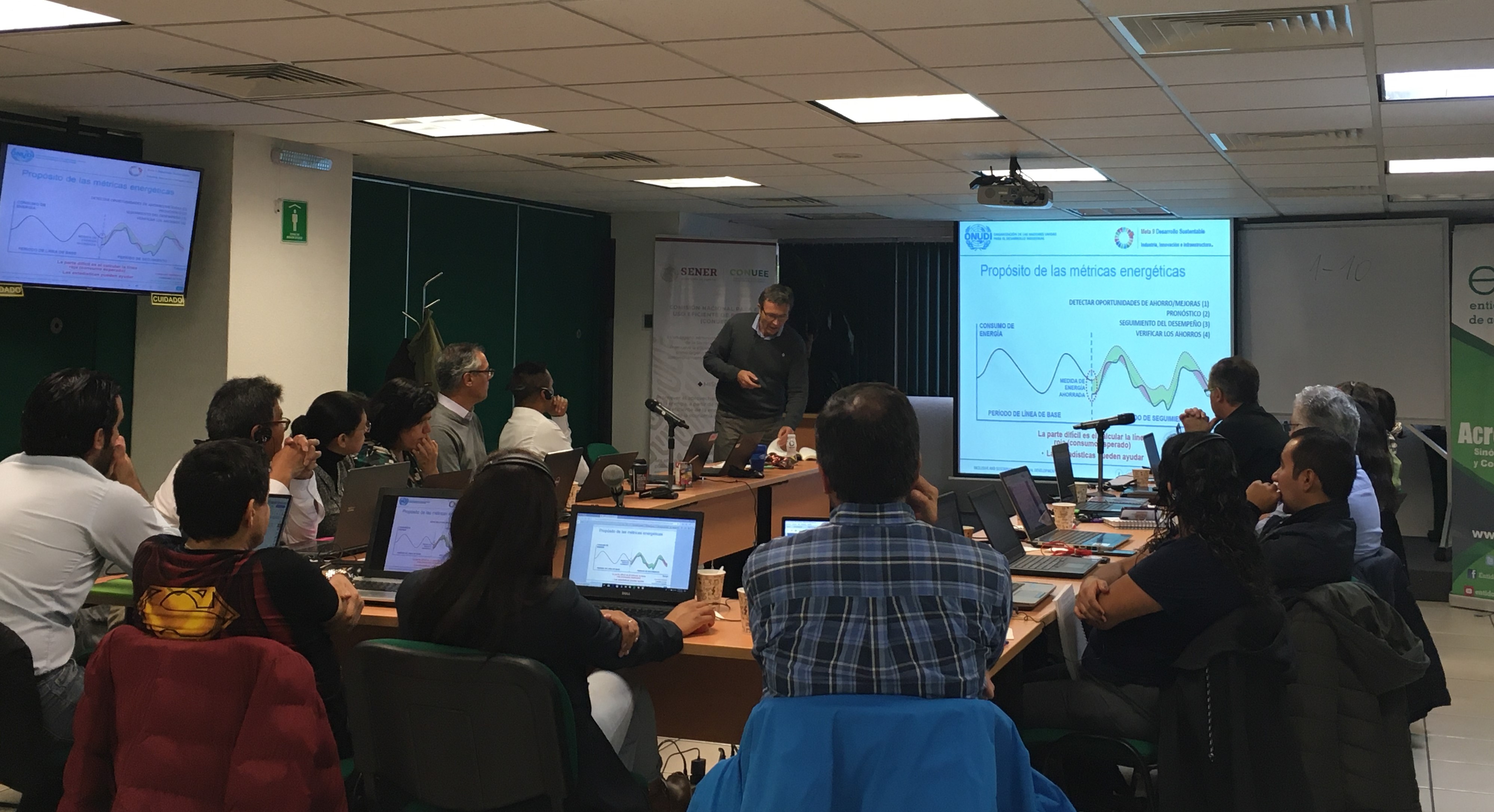Scaling up industrial energy efficiency management across Mexico
16 December 2019 UNIDO

Originally published by the Industrial Energy Accelerator. Co-convened by the United Nations Industrial Development Organization (UNIDO) and the Carbon Trust, with support from the Global Environment Facility (GEF), the Accelerator works to rally government, industry and finance around solutions that ignite change in energy-intensive industries.
Delivered in collaboration with the National Commission for the Efficient Use of Energy (CONUEE) and UNIDO's Mexico office, the training provides one of the first opportunities for Mexican energy managers and stakeholders to access the newest version of the ISO 50001 energy management standard in their home country.
For Carbon Trust programme manager Erika Salinas-Talavera, hosting an ISO 50001 training workshop with the tools developed by UNIDO in Mexico is a significant milestone.
“Although Mexico does have some specialised human resources in industrial energy efficiency, very few local consultants and energy managers have been exposed to the latest version of the ISO 50001 energy management system. Even fewer have the capacity to train other specialists,” explains Salinas-Talavera, who says most energy specialists including herself are forced to travel abroad to obtain the appropriate accreditation and qualifications.

Through the Accelerator’s ISO 50001 ‘train the trainers’ programme, it is hoped that access to internationally recognized energy management standards and certifications will be significantly improved in Mexico over the coming years.
“Our ‘train the trainers’ approach will ideally help to accelerate a considerable scale up of industrial energy efficient management across Mexico,” says Salinas-Talavera.
While there are a number of internationally recognized energy management systems, ISO 50001 was chosen as a framework due to its widespread international adoption. According to Erika, the ISO 50001 standardizes energy management systems between countries, thereby providing a common baseline for Mexican industrial companies to compare their energy savings with other countries and competitors in the region. All over Latin America, small and large industrial companies are differentiating themselves by adopting standards like ISO 50001 which not only boost productivity but also mitigate a company’s impact on the environment as well.
Currently Mexico ranks relatively low against international competitiveness indices. For example, in 2019, the World Economic Forum’s Global Competitiveness Index placed Mexico in 48th position among 141 countries. In 2017 Mexico was ranked 36th out of 43 countries evaluated for the International Competitiveness Index of the Mexican Institute for Competitiveness (IMCO). For a country where industry contributes to 25 per cent of GDP, efforts to improve industrial energy efficiency through capacity building will greatly contribute to boosting Mexico’s competitiveness on the international stage.
For the 20 workshop participants, the ISO 50001 training programme is a welcome opportunity to contribute to the sustainable growth of Mexico’s economy.
“The issue of energy efficiency is relatively new in our country, hence there are not many people who know the subject in depth. In Mexican industries, we don’t have a strong culture of systemically measuring our energy use so there is no way for us understand how we can optimize consumption. There is a lot of potential,” explained Juan Torres, an energy management consultant who is eager to apply the new knowledge he gain from the training.
“Energy efficiency is a fast and effective way to increase competitiveness, the benefits are also shared with energy suppliers due to lower demand which allows for investment into new capabilities for everyone involved in the industrial energy supply chain,” added Juan.
Another intended benefit of the training is to improve coordination between public and private sector organizations, which rely on each other to usher in systemic energy efficiency reforms. A lack of coordination between policymakers and energy managers is among the key barriers to accelerating industrial energy efficiency in Mexico. While Mexico boasts a robust suite of energy efficient regulations and policies, it can be difficult for companies to keep up when access to training and capacity building resources are often hard to come by.
“We hope that by bringing both public and private stakeholders together, through the training process, cross-sectoral coordination and collaboration will be improved thereby helping to address some of the barriers industry faces in complying with energy efficiency policy,” explains Erika Salinas-Talavera.
Having participated in the first week long workshop, the 20 trainees have since returned to their companies, industrial facilities and offices to apply their newly acquired skills and knowledge through a series of energy audits. The group will reconvene again in February 2020 for the second stage of the Accelerator’s ISO 50001 training. Participants will learn techniques to share their understanding of the ISO 50001 energy management system in their own workplaces and beyond.
See also: China looks to energy efficiency in a bid to accelerate its green economy